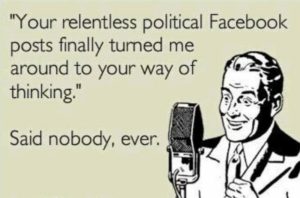Anger is a common emotion that many people experience regularly. If you have ever tried to have a reasoned conversation with someone angry, then you already know that anger makes it very difficult for someone to use reason and logic, and to think clearly about the situation. Anger influences our perceptions, beliefs, ideas, reasoning, and ultimately our choices. That is why it is pointless to try and reason with someone full of anger or rage. The more angry someone becomes the more cognitive impairment they suffer from. As Jennifer Lerner and Katherine Shonk writing for the Harvard Business Review note,
“Angry people tend to rely on cognitive shortcuts—easy rules of thumb—rather than on more systematic reasoning. They’re also quick to blame individuals, rather than aspects of a situation, for problems.”
The book of Proverbs, named from the Hebrew word masal, which means a provocative saying, a popular saying, or a maxim which arrests the listener’s attention, is the oldest collection of inspired texts in the corpus of Wisdom literature. Chapter 29 verse 11 says,
“Fools give vent to all their anger; but the wise, biding their time, control it.”
Today this ancient wisdom is supported by a wealth of psychological studies. Research has shown that when someone or something someone cares about has been offended or injured, anger provides a sense of certainty or confidence about the angering event and what caused it (Litvak et al., 2010). Additionally, anger leads to the belief that rather than the situation itself or the person themself, another person was responsible for the event (Lazarus, 1991).
Research has also found that people are selective about the content they are apt to take in and that it often matches the emotional state they are in (Potegal, 2010). Therefore, angry people will most likely seek content that reinforces their anger instead of challenging it. This is why when someone is angry; they are unable to process information that is incongruent with their belief. They become trapped in a vicious circle, limited to consuming or only deeming reliable information that confirms their anger.
Many people hold onto anger as a means of protecting themselves from being hurt. Anger leaves them continually on guard and unable to trust in a meaningful way. Anger left unresolved, can turn into moral indignation. No longer is a person merely upset, they now believe they have the moral high ground, and their anger is justified. Those that oppose the angry person’s perception are, in their mind, morally less than. The angry person simply can not understand any other perspective.
 Chronic anger can be seen in angry comments on social media; statements of opinion are often expressions of anger rather than rational arguments. Such anger impairs the capacity to be civil, open, understanding, or compassionate. It blurs our vision to the possibilities of looking for and noticing the positive in others and ourselves–even when we have disagreements. It also leads to binary thinking. Situations or a person can not be seen in context and charity. They become black and white, good or bad. Individuals, however, are seldom all good or all bad. The chronically angry person forces them to be one or the other.
Chronic anger can be seen in angry comments on social media; statements of opinion are often expressions of anger rather than rational arguments. Such anger impairs the capacity to be civil, open, understanding, or compassionate. It blurs our vision to the possibilities of looking for and noticing the positive in others and ourselves–even when we have disagreements. It also leads to binary thinking. Situations or a person can not be seen in context and charity. They become black and white, good or bad. Individuals, however, are seldom all good or all bad. The chronically angry person forces them to be one or the other.
Chronic anger is often the underlying cause of hatred of others who may be different from ourselves or hold different perspectives. The chronically angry person believes (often unconsciously) that they can not be entirely happy because of the presence or the mere existence of the person they hate. Letting go of their anger is difficult because it forces them into the unpleasant need to have to examine their own lives and into the dark hidden places of their psyche.
The renowned Swiss psychologist Carl Jung called this place the “shadow self.” — the place where the unowned side of your personality lives. Your shadow self is the part of you that stays unknown, unexamined, and out of the light of your conscious awareness. It is the part that is denied or suppressed because it makes you uncomfortable or afraid. Whatever doesn’t fit the image of your ideal self becomes your shadow.
If you want to discover your shadow, pay attention to the judgments you make about others. Simply observing something it is not a projection, but if you judge it, it is. If you observe someone being mean to someone else but you don’t react emotionally, it’s an observation. If you get upset and think, What a disgusting person! then you are probably projecting. 
What you judge in others can be a reflection of qualities that you possess, but deny, within yourself. If you are always judging others, then it is likely that your own shadow is quietly screaming at you. The people we claim to hate are often the people who arouse our shadow. As Ham (2018) discusses, “The Bible assumes that humans can become “blind” in a figurative sense (Exodus 23:8, Matthew 15:14, Matthew 23:16-17, John 9:39, 1 John 2:11), which involves individuals not being able to see their own lives clearly due to the effects of the fall of humankind in the Garden of Eden (Genesis 3).”
Many Christians have a cursory hermeneutic of Matthew 7:3-5.
3 “Why do you notice the splinter in your brother’s eye, but do not perceive the wooden beam in your own eye? 4 How can you say to your brother, ‘Let me remove that splinter from your eye,’ while the wooden beam is in your eye? 5 You hypocrite,* remove the wooden beam from your eye first; then you will see clearly to remove the splinter from your brother’s eye”
The simple interpretation is an admonishment not to judge others. Like the rest of the Bible, the message is multi-layered and has a depth beyond the obvious message. Of course, it is not a prohibition against recognizing the faults of others, which would be hardly compatible with Mt 7:5, 6 but against passing judgment in a spirit of arrogance, forgetful of one’s own faults. The hypocrite: the designation previously given to the scribes and Pharisees is here given to the Christian disciple who is concerned with the faults of another and ignores his own more serious offenses. It is also a warning that we can not see clearly the sins of others because we are full of sin ourselves, from the Jungian perspective we have a shadow.
From a societal perspective, anger and its ensuing hatred can take hold of a nation over a sustained period and shape an individual’s choices and perceptions. This phenomenon, coupled with the advent of social media that allows us to demonize distant groups that are far off and less likely to be interested in resolving issues, is increasing people’s anger and will enable them to stay in a consistent state of anger and hatred. Without real-life in-person interactions, the anger is much more challenging to resolve.
Forgiveness is an antidote to hate and to moving on with wisdom.
 I saw a meme on Facebook recently that said, “The number of minds changed from a Facebook post is Zero.” There is, in fact, much wisdom to learn from that statement. Social media is a place where people go to confirm what they already believe and vent their frustrations. It is not a place that those who want to learn about a subject go to for knowledge.
I saw a meme on Facebook recently that said, “The number of minds changed from a Facebook post is Zero.” There is, in fact, much wisdom to learn from that statement. Social media is a place where people go to confirm what they already believe and vent their frustrations. It is not a place that those who want to learn about a subject go to for knowledge.
When encountering people who are angry, its best to keep in mind that there is most likely something that lies deeper than the issue at hand that has the person in a state of anger. It is difficult enough to parse out the root of such anger in in-person interactions, let alone through the distant and binary “like & dislike” world of social media. Rather than engaging in arguments, it is more effective to share credible stories, research material, and other viable sources that might help change someone’s mind. When engaged in a dialog via social media, people are often too angry to listen. Perhaps when they have calmed down, they can reflect on a counter perspective at their leisure and take the time necessary to digest the information.
There is little doubt that technology has had an overall positive impact on humans. Emerging clinical evidence is suggesting, however, that technology like social media can be addictive. Although the harmful effects of social media addiction are less devastating than those from drug or alcohol addiction, they can nevertheless have adverse effects on work, school, social functioning, and overall wellbeing. He et al. (2017) studied brain structural alterations associated with social media addiction. The study found that people with high social media networking addiction scores have a pruned amygdala, which is presumably involved in generating strong impulsive behaviors. The amygdala is the part of the brain that is associated with the processing of memory, decision-making, and emotional responses including fear, anxiety, and aggression.
We need to regain the biblical idea of Sunday as a day of giving thanks, rest, and spending time with family and friends. It would also be a great idea to give your brain a rest from social media. Engage in real-life get-togethers —A day a week will do your brain good. Finally, and perhaps most important is learning to be patient.
“The patient are better than warriors, and those who rule their temper, better than the conqueror of a city”
References Ham, C. (2018). Overcoming Self-Deception:Integrating Christian Theology with Jungian Psychoanalysis. Journal of Psychology and Christianity Vol. 37, No.2, 137-152 He, Q. et al. (2017). Brain anatomy alterations associated with Social Networking Site (SNS) addiction. Sci. Rep. 7, 45064; DOI: 10.1038/srep45064. Lazarus, R. S. (1991). Emotion and adaptation. New York: Oxford University Press Litvak, P, M., et al. (2010), International Handbook of Anger, DOI 10.1007/978-0-387-89676-2_17

